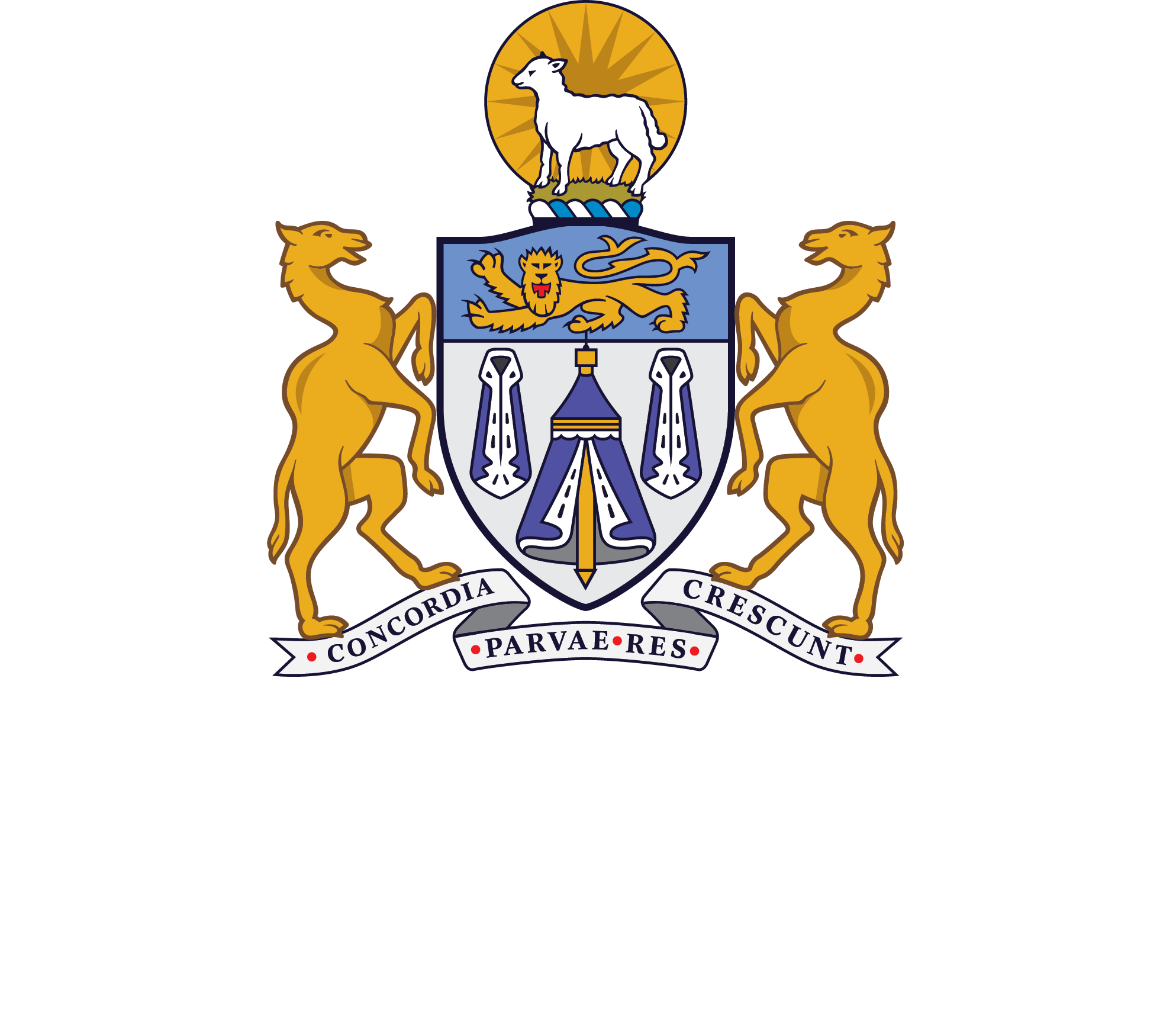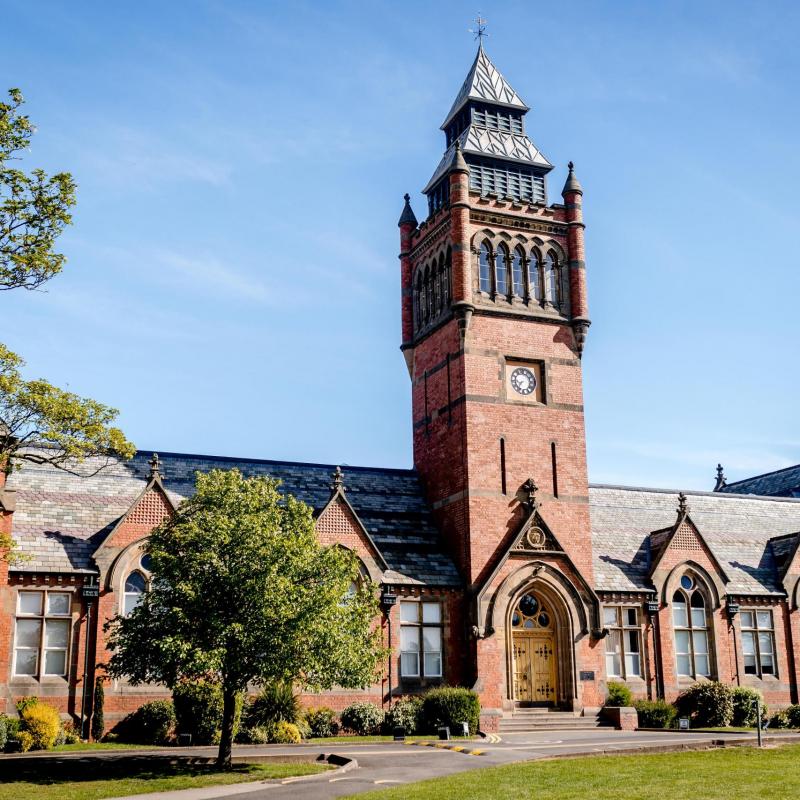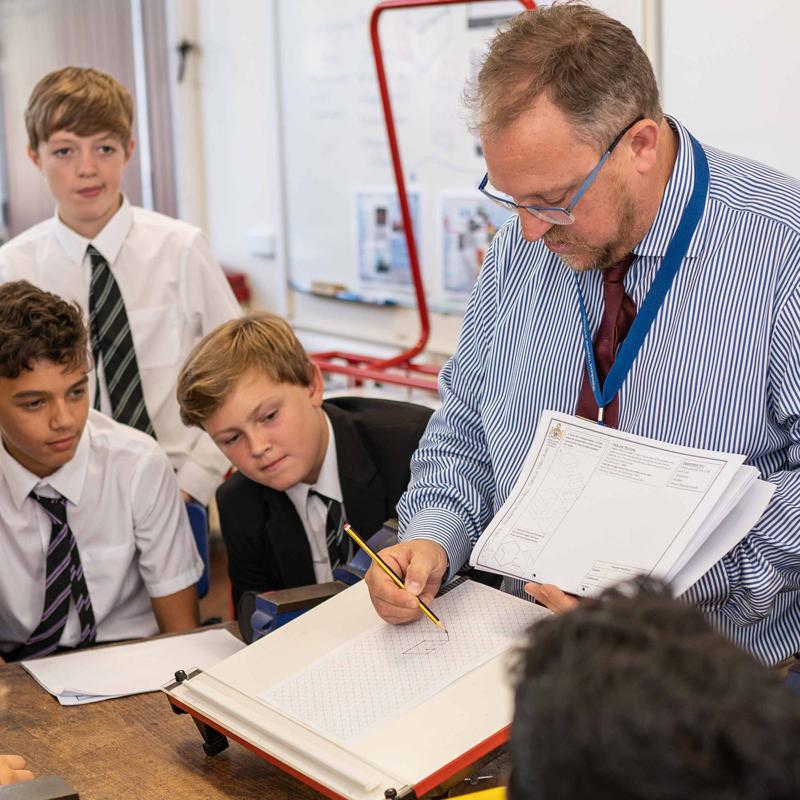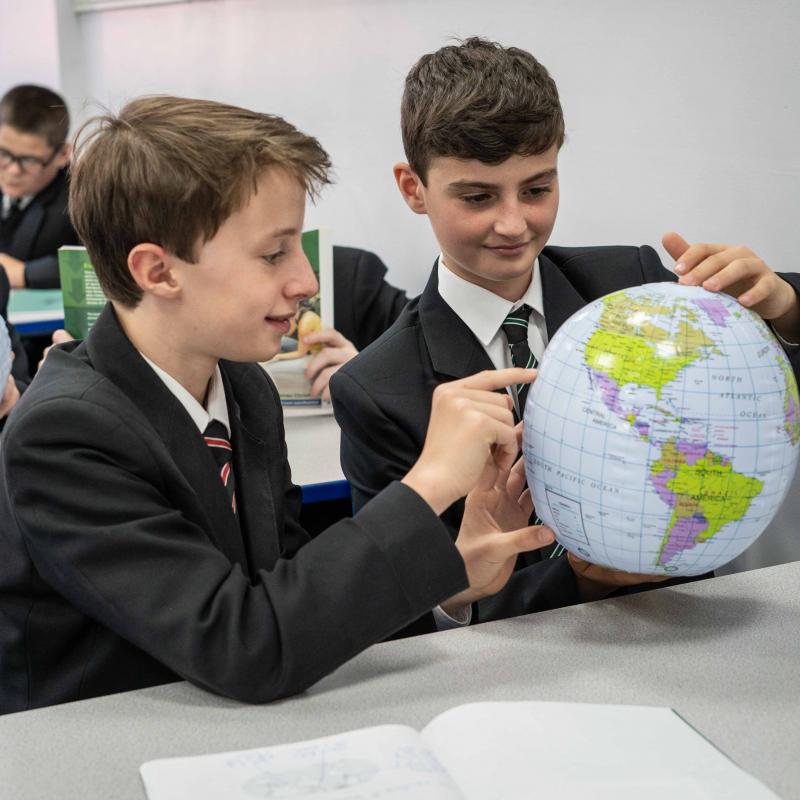English
The study of English at Merchant Taylors’ can be viewed as one complete course spanning seven years, broken into three main interdependent stages, one leading to the next, and the last to university.
Our exciting and innovative curriculum encourages pupils to develop both analytical and creative responses to the rich and diverse canon of literature in English. Pupils are prompted to question received ideas about texts and to confidently defend their own interpretations, both in written essays and class debate.
In their study of English Language, pupils discover the power of both spoken and written English to persuade and influence. Through their exploration of a range of non-fiction and fiction texts, they become adept at understanding the effects of rhetorical techniques, which they then exercise in their own persuasive writing. They also explore the way in which language and structure can be used by writers for effect.
Lower School
In Years 7, 8 and 9, pupils are introduced to the delights of English Language and Literature. Our aim is to develop and nurture the linguistic skills that students will need in order to face the challenges ahead.
Pupils concentrate on four main areas of English, explored through a broad variety of different texts and genres:
- Literature (Prose, Poetry and Drama)
- Media, non-fiction and associated writing skills
- Language and Grammar
- Speaking and Listening
In Year 7, pupils will have the opportunity to engage with literature across time, from Shakespeare’s plays to modern day media texts and the language of advertising. An introduction to Early Modern literature exposes students to the ways in which English language and literature has evolved over time. Pupils will respond to some of the older texts written in English in creative and playful ways, viewing them through a lens of modernity. For example, pupils subvert the conventions of traditional fairy tales in their own creative writing, for example, in the style of ‘Shrek’ or ‘Wicked’.
In Year 8, an understanding of sub-genres of prose fiction such as dystopian and gothic novels underpins students’ own writing. In addition, students explore Shakespearean tragedy, and apply their knowledge to an interpretation of the modern drama, Noughts and Crosses. There is a focus on culturally diverse literature in Year 8, as pupils study the short story collection ‘Iridescent Adolescent’ and different poetic forms. Through their study of literature texts, pupils explore how writers use language and structure for effect and apply their knowledge to their own writing.
In Year 9, pupils begin to study some of the texts that they will need for GCSE English Literature. One of the themes of this study is ‘contexts’, as they consider poetry from the GCSE anthology and Victorian prose writing, in particular Charles Dickens and how his social conscience had an impact on the creation of his well-loved characters. Pupils are introduced to their GCSE Shakespeare play and also have the chance to consider the classic satirical allegory, ‘Animal Farm’.
GCSE
Pupils are entered for both English Language and English Literature GCSE and are awarded two separate grades at the end of Year 11.
Both courses build on skills and knowledge of English developed during Years 7, 8 and 9 and provide a firm foundation for further study of English Literature and English Language at A-Level.
At GCSE, pupils’ essay-writing skills are further developed, in order to prepare them for writing extended answers. We encourage pupils to develop their own individual ideas and interpretations of texts, and to test these out in class discussion before robustly defending them in their written work. Creativity continues to be nurtured as we teach students the techniques to express themselves in a range of different styles of writing, from creative narratives to persuasive speeches.
GCSE English Language
For GCSE English Language, we teach the WJEC Eduqas specification.
English Language is assessed by two examination papers, both featuring unseen texts. Each will demand responses assessed for reading comprehension and for original writing.
Component 1 (40% of the total award)
Section A involves the analysis of one prose extract from the 20th century. In Section B, pupils compose an original creative narrative.
Component 2 (60% of the total award)
Section A requires pupils to read, understand and compare non-fiction texts from the 19th and 21st centuries. In Section B, candidates complete two transactional writing tasks, such as a film review or a newspaper article.
Component 3 – Spoken Language Assessment (unweighted)
Pupils perform a prepared presentation / speech, and then respond to follow-up questions.
GCSE English Literature
For GCSE English Literature, we teach the WJEC Eduqas specification.
English Literature also consists of two examination papers, both featuring a range of literary texts.
Component 1 (40% of the total award)
In Section A, pupils answer two questions on a Shakespeare play. In Section B, pupils answer two questions based on the Eduqas poetry anthology.
Component 2 (60% of the total award)
Pupils write essays based on extracts from ‘An Inspector Calls’ by J.B. Priestley and ‘A Christmas Carol’ by Charles Dickens. In the third section of the examination, students answer two questions on unseen poetry.
A Level
At Merchant Taylors’ we offer both A Level English Literature and A Level English Language.
A Level English Literature
The A level English Literature classroom at MTS is a lively space in which pupils can explore some of the most controversial and innovative texts ever written. At this advanced level, pupils are introduced to the world of literary criticism and begin to debate their interpretations of literature within the framework of historicism.
At A level, we teach the AQA English literature course, Specification A.
Paper 1 (40% of the total award)
The theme of Paper 1 is ‘Love Through the Ages’, for which we study Othello, The Great Gatsby and the AQA pre-1900 anthology. Pupils are also examined on unseen poetry.
Paper 2 (40% of the total award)
For Paper 2, pupils study modern literature from 1945 to the present day. They answer on Skirrid Hill, a poetry collection by Owen Sheers, and unseen prose, before writing a comparison of A Streetcar Named Desire by Tennessee Williams and The Handmaid’s Tale by Margaret Atwood.
NEA (20% of the total award)
The Non-Examined Assessment for English literature allows pupils to make an independent study of two texts of their own choosing, one of which must have been written before 1900. This is often the most popular element of the course, as it allows students to study a personal favourite that has never featured on set text lists.
A Level English Language
A Level English Language is an incredibly popular subject at MTS and continues to go from strength-to-strength within the school curriculum.
At A Level, we teach the Eduqas A Level English Language course.
Component 1: Language Concepts and Issues (30% of the total award)
Section A: Analysis of Spoken Language: One question requiring analysis of at least two transcriptions of spoken language.
Section B: Language Issues: One question from a choice of three based on the study of four topic areas
Component 2 : Language Change Over Time (30% of the total award)
Section A: Language Change Over Time: One multi-part question and one essay question analysing language change over time
Section B: English in the Twenty-First Century: One question based on the ways language is used in the twenty-first century
Component 3 : Creative and Critical Use of Language (20% of the Total award)
One question, from a choice of two, requiring two original writing responses and one commentary
Component 4: NEA (20% of the total award)
Language and Identity: 2500-3500 word language investigation based on the study and research of a topic related to language and identity. Learners are required to choose a topic from the following list: language and self-representation; language and gender; language and culture; or language diversity.




